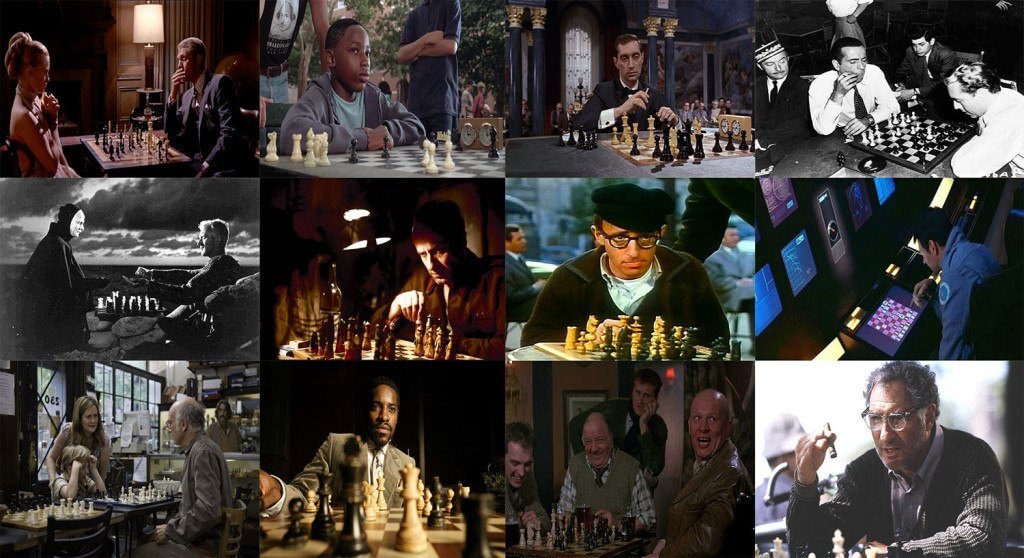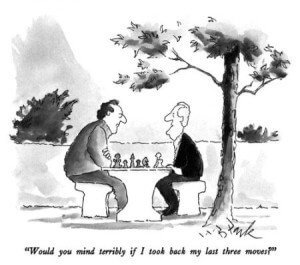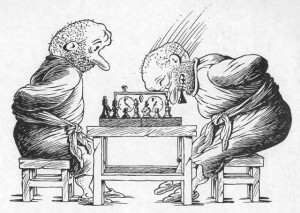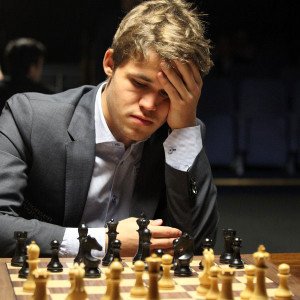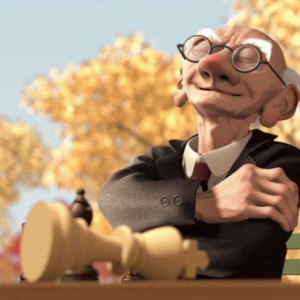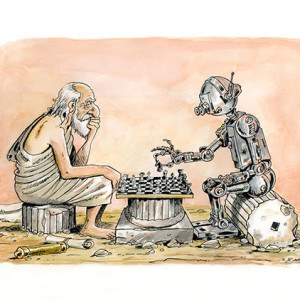I‘m sure most people have heard the cliché “chess mirrors life” at least once before. Even though it’s an abstract cliché, I believe the saying is relevant depending on perspective. I try to either play or study chess on a daily basis, with the (sometimes seemingly hopeless) goal of becoming an expert. Even though I’m far from an expert chess player currently, I’ve been able to apply lessons I’ve learned from both succeeding and failing at chess to my day-to-day life at ECG. From my point of view, here are five reasons why chess and video production go hand-in-hand.
1. Both Reward Preparedness and Foresight.
Most people who are familiar with chess know that it is both good and important to think multiple moves ahead. Usually, the chess player who demonstrates more foresight and analyzes positions deeper than his or her opponent will win.
During this past Monday’s team meeting, it was discussed that we would need to order an ear prompter for talent to use during an upcoming shoot. David noted that in the case that the ear prompter either did not work adequately or arrive on time that we would need to think about executing an alternative course of action. David was thinking like a good chess player. In any scenario when achieving a goal is critical, it is important to think about as many variables and variations as possible that may come up that could potentially hinder you from executing successfully, and then devising counter plans against them.
2. When Under Pressure, You Must Perform Quickly and Accurately.
More often than not, if I’m playing chess, I’m playing five minute blitz. This means that both players start the game with 5 minutes on clock. In blitz chess, you either lose by getting checkmated or you lose by running out of time. I’ve played many games where I’ve been winning positionally but severely down on time. A lot of these games I’ve been able to win, but I’ve also folded under time pressure equally as frequently. It is important to be able to perform accurately and quickly when under pressure in chess and in video production. You have to meet deadlines. You have to deliver exactly what your clients want. You have to perform at your maximum potential every time. If not, you’ll usually lose (and nobody wants to be a loser). It is easy to become overwhelmingly stressed under pressure, but I try my best to stay calm and focused whenever I feel like I’m in a binding position.
3. Unwavering Focus and Alertness are Necessary for Good Results.
This point just about goes without saying. When playing chess, you have to maintain your focus. It is important to clear your mind and only focus on the objectives you have at hand. I imagine chess as a scripted dialogue between two actors. In order to execute the scene, both actors have to stay focused on scene to deliver effectively. Sometimes, given the scenario, there is room for improvisation, but if one of the actors is having trouble focusing and can’t deliver their lines, a loss (whether it be of time, money or someone’s job) is likely to occur.
4. You Have Learn From Your Losses in Order to Improve.
There isn’t anything I hate more in life than losing or failing at a challenge. Unfortunately, I lose chess games everyday. At times I’ve had to hold back tears and certain four letter words after losing at chess. Whenever I get crushed by my opponent, I reflect on the mistake I made and try my best not to repeat that same error again in the future. In my experience as a video editor, I always strive for perfection but rarely is anything “perfect.”
Even in regards to edits that I’ve delivered on time and had approved, I know that there was still room for improvement. I’ve found it to be mandatory to self analyze my performance all of the time in order to pinpoint where I need to make adjustments to ensure that I’m developing and progressing towards master status.
5. Consistent Excellence Separates the Average from the Superhuman.
During the course of my miniscule chess career, there have been times when I’ve performed well above average, as well as times when I’ve played so terribly an onlooker would assume I had the intelligence quotient of a five year old. In order to be considered great at anything, you have to perform well every time. I try to keep all of the lessons that I learn from chess in my daily thinking patterns. Even though I’m not successful in every game that I play, I know that I have the potential to be an expert as long as I stay diligent and passionate about enhancing my game.
